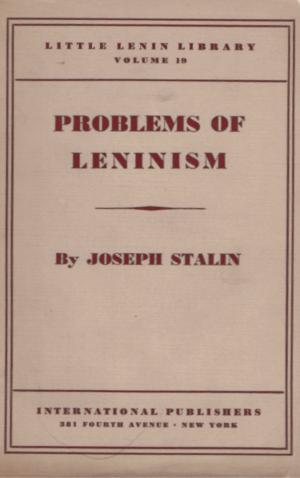Karl Marx and Frederick Engels
Reactionary Prussianism
Nonfiction, Social & Cultural Studies, Political Science, Government, Social Policy, Communism & Socialism, Public Policy| Author: | Institut marksizma-leninizma (Moscow, Russia) | ISBN: | 1230001795776 |
| Publisher: | New York : International Publishers | Publication: | August 11, 2017 |
| Imprint: | Language: | English |
| Author: | Institut marksizma-leninizma (Moscow, Russia) |
| ISBN: | 1230001795776 |
| Publisher: | New York : International Publishers |
| Publication: | August 11, 2017 |
| Imprint: | |
| Language: | English |
Prussianism refers to the practices and doctrines of the Prussians; specifically, the militarism and severe discipline traditionally associated with the Prussian ruling class.
Karl Marx (5 May 1818 – 14 March 1883) was a Prussian-born philosopher, economist, political theorist, sociologist, journalist, and revolutionary socialist. Born in Trier to a middle-class family, he later studied political economy and Hegelian philosophy. As an adult, Marx became stateless and spent much of his life in London, England, where he continued to develop his thought in collaboration with German thinker Friedrich Engels and published various works, the most well-known being the 1848 pamphlet The Communist Manifesto. His work has since influenced subsequent intellectual, economic, and political history.
Friedrich Engels (28 November 1820 – 5 August 1895) was a German philosopher, social scientist, journalist, and businessman. He founded Marxist theorytogether with Karl Marx. In 1845, he published The Condition of the Working Class in England, based on personal observations and research in Manchester.
In 1848, he co-authored The Communist Manifesto with Marx, though he also authored and co-authored (primarily with Marx) many other works, and later he supported Marx financially to do research and write Das Kapital. After Marx's death, Engels edited the second and third volumes. Additionally, Engels organised Marx's notes on the Theories of Surplus Value, which he later published as the "fourth volume" of Capital. He also made contributions to family economics.
Prussianism refers to the practices and doctrines of the Prussians; specifically, the militarism and severe discipline traditionally associated with the Prussian ruling class.
Karl Marx (5 May 1818 – 14 March 1883) was a Prussian-born philosopher, economist, political theorist, sociologist, journalist, and revolutionary socialist. Born in Trier to a middle-class family, he later studied political economy and Hegelian philosophy. As an adult, Marx became stateless and spent much of his life in London, England, where he continued to develop his thought in collaboration with German thinker Friedrich Engels and published various works, the most well-known being the 1848 pamphlet The Communist Manifesto. His work has since influenced subsequent intellectual, economic, and political history.
Friedrich Engels (28 November 1820 – 5 August 1895) was a German philosopher, social scientist, journalist, and businessman. He founded Marxist theorytogether with Karl Marx. In 1845, he published The Condition of the Working Class in England, based on personal observations and research in Manchester.
In 1848, he co-authored The Communist Manifesto with Marx, though he also authored and co-authored (primarily with Marx) many other works, and later he supported Marx financially to do research and write Das Kapital. After Marx's death, Engels edited the second and third volumes. Additionally, Engels organised Marx's notes on the Theories of Surplus Value, which he later published as the "fourth volume" of Capital. He also made contributions to family economics.















